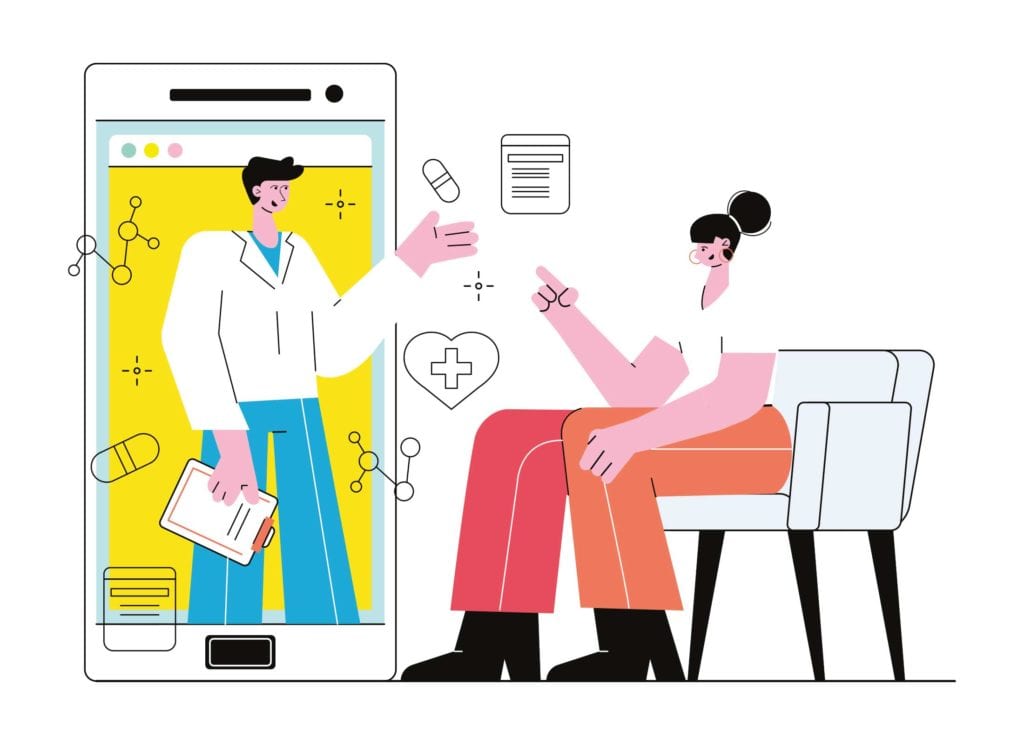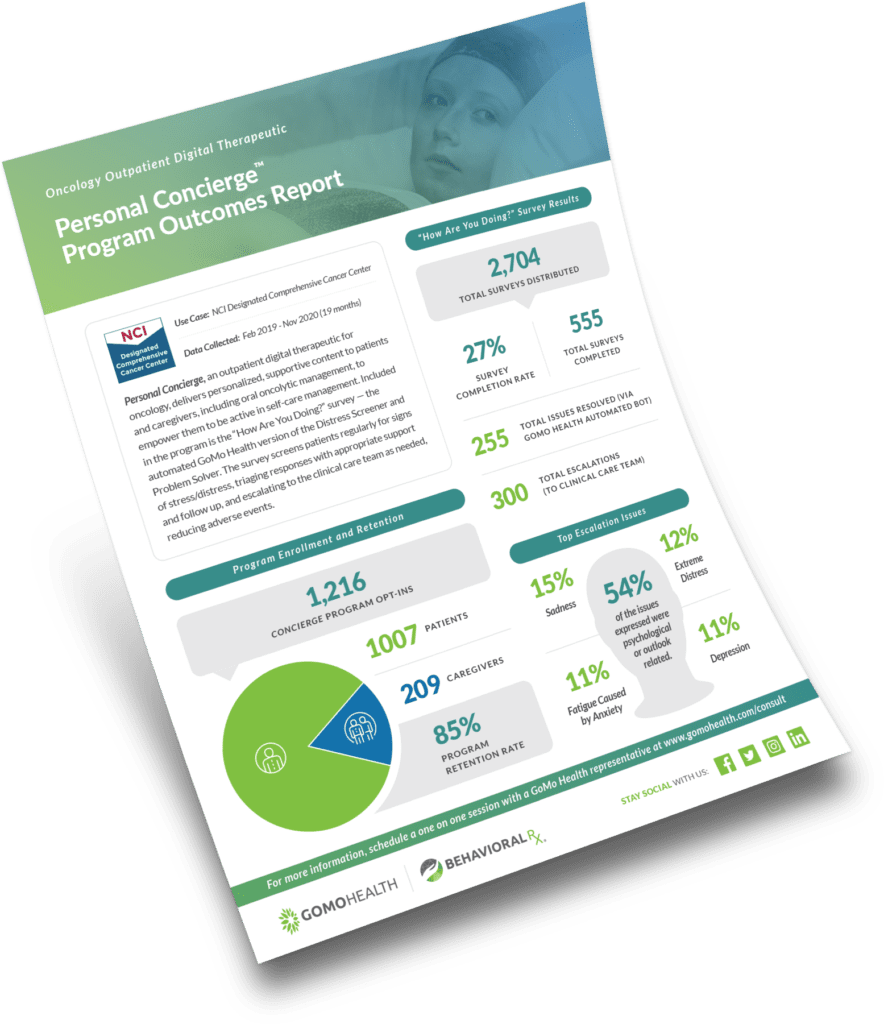Outpatient Cancer Care: The Benefits, Limitations, and How Concierge Care Helps
The outpatient treatment model for essentially all conditions is, by default, less in-depth than inpatient care, but is a necessary and critical component of oncology that yields a variety of benefits. When it comes to the extremely time-sensitive and comprehensive nature of the oncology journey, these distinctions can make a significant difference in treatment efficacy and quality of life.
The Benefits of Outpatient Oncology
Recent data indicates that more than 80 percent of cancer treatment is now conducted in an outpatient setting. The migration of cancer care to an outpatient setting over the past decade has empowered cancer patients to take a more active role in both the clinical and lifestyle aspects of their care. Specific advantages and benefits of outpatient cancer care include:
Multiple Areas of Specialization
There are more and more outpatient oncology centers that are being developed to treat the complex and unique clinical needs of patients. The rapid advancement of outpatient oncology has seen a surge in a variety of specialty treatment venues, from palliative clinics and infusion centers to survivorship programs.
Avoiding Hospitalization and Cost Benefits
One of the obvious advantages of outpatient cancer care is that it means less, or no, time spent in a hospital and more abbreviated time spent in an ambulatory setting in general. Patients can receive their treatment and often go home that same day. Not only does this have obvious comfort and quality-of-life benefits, but it can also translate to real and measurable cost savings. The American Cancer Society indicates that outpatient treatment covered by private insurance accounts for most cancer care dollars spent each year. In some studies, cancer care has found to be 60 percent cheaper in an outpatient setting compared to hospitals.
Safe and Effective Drug Administration and Therapy
Administration of chemotherapy drugs are safer and more effective than ever in independent outpatient settings. Additionally, there is data to support that infusion treatments have poorer outcomes when administered in an inpatient setting. Oral oncolytics (a relatively new method of outpatient self-administered cancer medication delivery) further empowers patients in their care journey while freeing oncology nurses and medical professionals to attend to other clinical duties.
Limitations of Outpatient Oncology
During cancer treatment, the importance of treating the “whole” patient cannot be overstated. Unfortunately, however, the outpatient model usually doesn’t lend itself to the in-depth and targeted exploration of each patient’s individual mental health and quality-of-life concerns. While outpatient care certainly has its advantages, such as less time spent in the hospital and generally less cost on average, it also has some significant limitations.
Everyday Quality-of-Life Issues and Stress Management Limitations
There are a breadth of issues cancer patients experience that, while certainly connected with their diagnosis, go beyond its actual immediate treatment. These can include all manner of factors, including adopting proper eating habits to fertility issues to declines in mental health to concerns over their careers and many more. Unfortunately, there is an established and growing body of research that indicates that outpatient treatment is falling short of effectively engaging patients in addressing these concerns.
Data from the National Cancer Institute indicates that many outpatient cancer patients may not have adequate access to adequate nutritional management or a properly developed framework for proper meal planning.
Additional NIH-funded research indicates that patients struggling with cancer and other chronic conditions often lack adequate resources when it comes to a full range of issues, including but not limited to stress management, diet and nutrition, and logistical support (such as insurance, paying for treatment, inadequate social support, etc.). Patients surveyed as part of this study also revealed that despite the adverse effects of the psychosocial problems described above, these problems are not well addressed as part of their oncology care.

How Can Concierge Care Pick Up Where Outpatient Cancer Care Leaves Off?
One of the fundamental pillars of the Concierge Care® model is the assertion that each and every patient is different and comes with their own unique set of care and lifestyle needs. The reality of the outpatient care visit, in oncology and every other disease state, is that the time restrictions imposed during in-person provider engagement don’t allow nearly enough time to focus on every single possible area with which patients might be struggling. Even the most ardent care advocates can’t possibly think to write down every single question to ask during appointments.
To compound the issue, no single care provider will be able to cover every area of concern for patients who are experiencing multiple areas of stress. There is also a glaring need to engage patients spontaneously when they’re having moments of crisis, as well as on an ongoing basis in their lived environments.
Personal Concierge™ has been instrumental in helping improve treatment outcomes and quality of life for patients struggling with various types of cancer. Through a comprehensive and intuitive framework of support delivered through mobile text messaging and other forms of technology, we have worked with multiple cancer treatment providers to engage oncology patients in their lived environments so they can get the care and support they need beyond the traditional outpatient visit model. Our Oncology Personal Concierge™ Program addresses common issues that lead to escalation, including extreme distress, sadness, depression, fatigue caused by anxiety, and more. The program has resulted in thousands of patients getting the in-the-moment support they need as a supplement to their outpatient clinical care while also helping care providers better engage with the patients they serve. The program also includes a distress survey that screens patients regularly for signs of stress or distress, triaging responses with appropriate support and follow-up, and escalating to the clinical care team as needed, reducing adverse events.
Personal Concierge for Oncology Outcomes Report
Download the Personal Concierge Outcomes report, which shows the results of Personal Concierge used as an outpatient digital therapeutic for oncology that delivers personalized, supportive messaging to patients.








Find Us Online